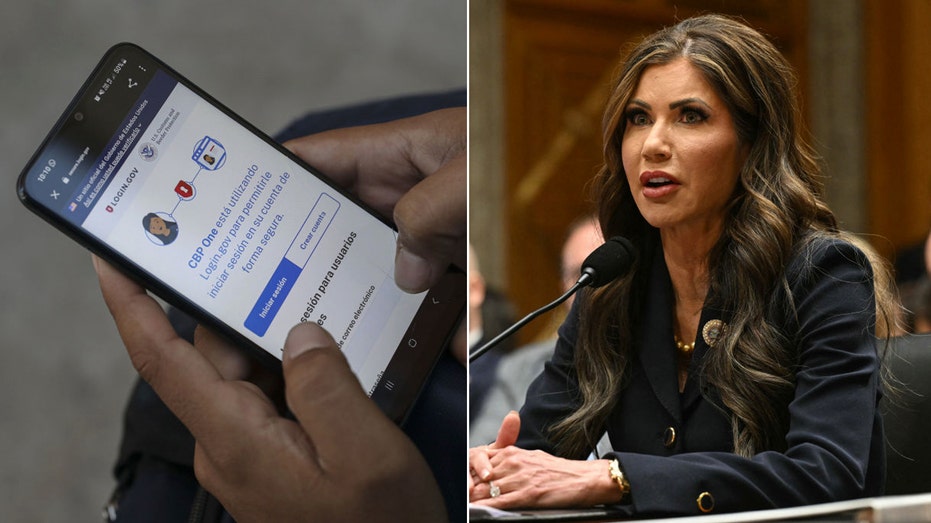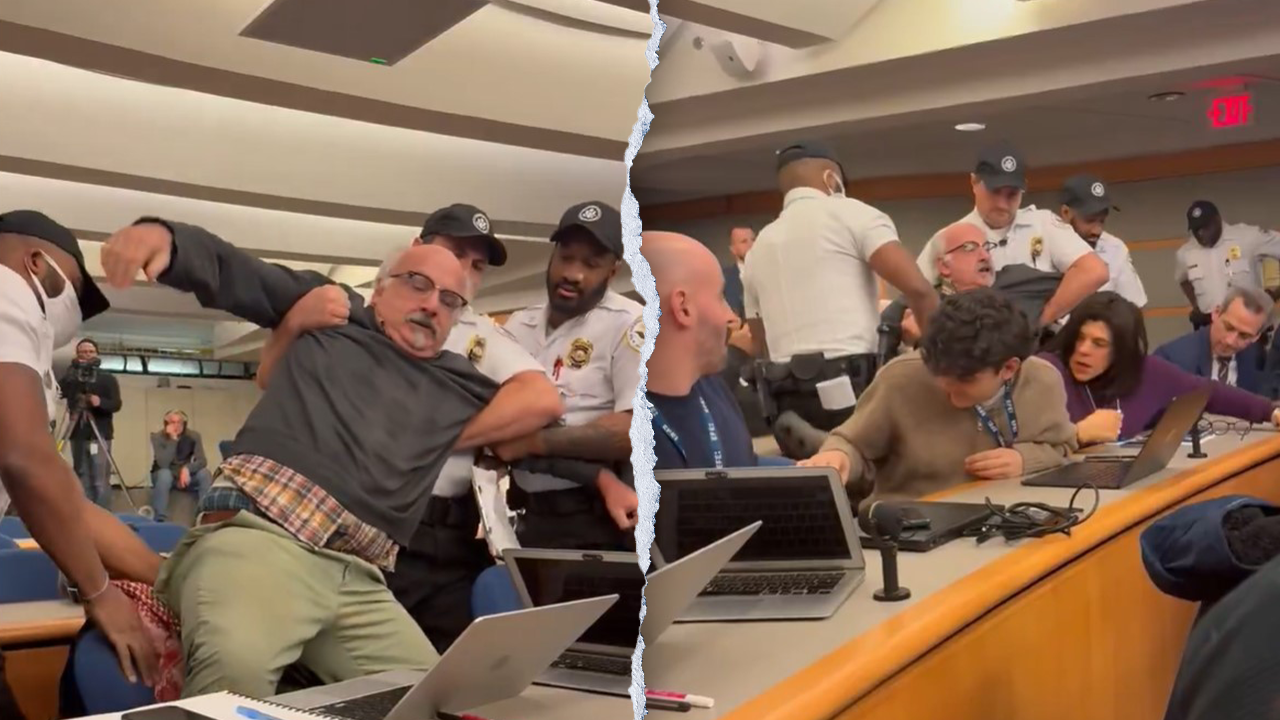During his confirmation hearing for secretary of state on Wednesday, Sen. Marco Rubio, R-Fla., leveled a searing critique of the postwar international order and the globalist ideology that sustains it. For generations, that ideology has dominated the corridors of power in Washington and guided American foreign policy almost without question. It has not served us well, and it’s long past time to discard it.
Rubio took direct aim at the postwar liberal order in his opening statement, signaling a major shift in American foreign policy under a second Trump administration. In Rubio’s telling, repudiating postwar globalism means a return of American foreign policy based on the American national interest, a recovery of our American identity, and a recognition that our national interests are not always going to be aligned with the interests of the so-called “international community” or global corporations.
It was a “dangerous delusion,” said Rubio, to think that the end of the Cold War meant the end of history and “that all the nations of the world would now become members of the democratic western-led community, that a foreign policy that served the national interest could now be replaced by one that served the liberal world order, and that all mankind was now destined to abandon national sovereignty and national identity and would instead become one human family, and citizens of the world.”
The hallmarks of this delusional ideology, Rubio went on, included “an almost religious commitment to free and unfettered trade,” which was pursued at the expense of our national economy. It also included “an irrational zeal for maximum freedom of movement of people,” which has caused a “mass migration crisis.” (Note that Rubio doesn’t qualify or limit this merely to “illegal immigration.”)
These twin pillars of the postwar liberal order, free trade and open borders, are the logical policy endpoints of the globalist ideology that first gained traction in the aftermath of World War Two and were adopted without question at the end of the Cold War. Where did this ideology come from though, and why has it been so thoroughly embraced for so long?
One of the major architects of it was Karl Popper, an Austrian philosopher who during World War Two wrote The Open Society And Its Enemies, a major philosophical work which would prove massively influential in the decades after its publication in 1945. Popper believed the fascist regimes responsible for the Second World War arose from what he called the authoritarian personality, which produced a tribal or “closed society,” marked above all by deference to authority and subordination of the individual to the collective. Such societies tend to be nationalistic, authoritarian or totalitarian, and committed to concrete ideas about transcendent or metaphysical truth.
The task facing the world in the aftermath of World War Two and the horrors of Auschwitz, wrote Popper, was to ensure that nothing like that could ever happen again. The only way to do that, he argued, was to banish the closed society altogether, reject transcendence, embrace disenchantment, and pursue a radically open society. Popper was a philosopher of science, and wrote in a formal, academic style, but his anti-metaphysical ideas translated to a politics of openness and a society in which everything was open to critical questioning and empirical falsification. Nothing was really true, in other words, except the need for openness and a rejection of what R.R. Reno has called “the strong gods” of national identity, religion, and transcendence. Popper thought we must define for ourselves the truths we need, even truth about reality itself: “Facts as such have no meaning; they gain it only through our decisions.”
In his 2019 book, Return of the Strong Gods, Reno argues that Popper’s influence on the postwar liberal order cannot be overstated — and that’s a big problem for us today. The danger of an open society is that at some point it begins to come apart. If nothing binds a nation together, it cannot cohere, and will eventually collapse.
Today we aren’t facing the war-ravaged world that Popper was, but one that has been dangerously weakened by the open society ideology that he espoused. “Our problems are the opposite of those faced by the men who went to war to defeat Hitler,” writes Reno. “We are imperiled by a spiritual vacuum and the apathy it brings. The political culture of the West has become politically inert, winnowed down to technocratic management of private utilities and personal freedoms. Our danger is a dissolving society, not a closed one; the therapeutic personality, not the authoritarian one.”
This is what Rubio was getting at in his opening statement, and it’s a theme that’s been running right through the heart of our political discourse since Donald Trump came down the escalator in 2015. Are we going to be an endlessly open society, committed only to open borders and free trade, with no sense of national solidarity or loyalty to the American nation and people? Or are we going to rediscover what the West cast aside after World War Two, and embrace again the loyalties and truth-claims that enable a nation and a people to cohere and pursue their collective interests over and against those of other nations?
To be sure, Rubio and Trump and the entire populist MAGA movement stand in contrast to a bipartisan consensus that has ruled in Washington for many decades now. In his televised address on Wednesday, President Joe Biden repeatedly referred to America as an idea. It’s a familiar claim, that America is based on the universal proposition that all men are created equal, therefore anyone who accepts the proposition can become an American.
But the limits of this claim should by now be obvious. America is more than an idea, it is a people bound together by a shared past and a common future. We have a distinct language, culture, and way of life. We are also not, as Elon Musk thinks, simply an indifferent meritocracy derived from a proposition of human equality. Much of Asia is also a meritocracy, and no one mistakes it for America.
Indeed, the proposition of human equality at the heart of our nation is above all a religious claim, specifically a Christian one. We have to understand “America as an idea” in that context. If America is an idea, the idea is not some version of the radical individualism and anti-metaphysics of Karl Popper, but the Gospel of Jesus Christ and the inheritance of Christian Europe. Put another way, the idea is western civilization itself, formed and sustained by Christian claims about God and man.
In concrete policy terms, a rejection of the postwar liberal order and a return to a politics of national solidarity will mean turning away from unfettered global free trade that benefits multinational corporations at the expense of America’s working families. It will mean rejecting mass immigration — legal and illegal — and recognizing that open borders are a force for destabilization and social chaos. And on the world stage it will mean recognizing that America’s national interests are not always served by deference to international bodies, corporate profits, and a rising GDP.
John Daniel Davidson is a senior editor at The Federalist. His writing has appeared in the Wall Street Journal, the Claremont Review of Books, The New York Post, and elsewhere. He is the author of Pagan America: the Decline of Christianity and the Dark Age to Come. Follow him on Twitter, @johnddavidson.

 By The Federalist (Politics) | Created at 2025-01-17 11:51:32 | Updated at 2025-01-17 19:32:25
7 hours ago
By The Federalist (Politics) | Created at 2025-01-17 11:51:32 | Updated at 2025-01-17 19:32:25
7 hours ago








